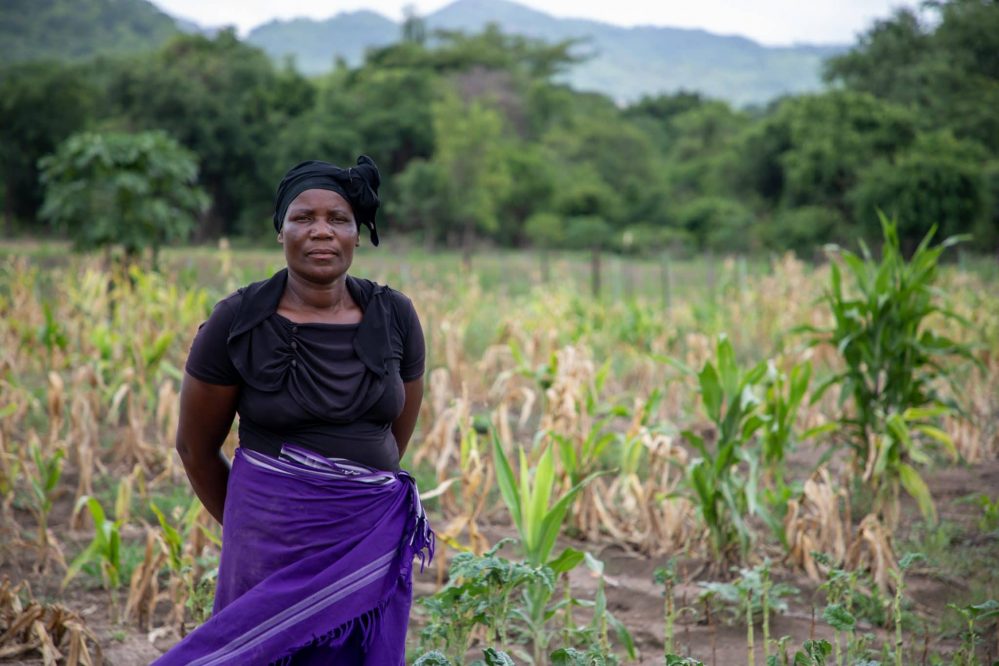Communities on the frontier of the climate crisis.
Consecutive years of drought, flooding and economic decline have left at least 14.4 million people in ten countries across the region facing severe food shortages. The region is warming at about twice the global rate and has been buffeted by multiple and compounding shocks.
CARE’s Lean Season Assistance program is assisting people affected by the drought in Zimbabwe, Malawi, Zambia and Mozambique. We are aiming to reach at least 554,000 people across the region with emergency food supplies, seeds to replant crops, as well as repairing broken water systems and establishing new ones.
Fast Facts
- The region has only had one normal rainy season in the past five years amid cyclones and persistent flooding
- Countries such as Mozambique, Malawi and Zimbabwe are still recovering from the devastating impacts of Cyclones Idai and Kenneth in 2019
- Nearly half of Zimbabwe’s population will require food aid this year
- Around 12 per cent of Malawi’s rural population cannot feed their families without assistance
- Zambia is currently experiencing its worst drought since the 1980s
Lifesaving food distribution and training
CARE is delivering emergency food supplies to starving communities, and is working with families in drought affected areas to increase the productivity and profitability of crops, and working with farmers on using modern techniques. We also support village saving groups to help people set up alternative sources of income and become more resilient to climate change and recurring natural disasters. CARE specifically targets its assistance to vulnerable women and girls, having recognised that women and children suffer disproportionately from poverty and crises.
So far CARE has provided emergency relief to more than 166,000 people in Malawi, Mozambique, Zambia, and Zimbabwe.
Please make a generous donation to help those who need it the most.


What we’re doing:
Increase Farming Knowledge
CARE is helping farmers adapt to the changing climate by teaching them about sustainable agriculture, ways to keep livestock alive, and training them in the best ways to grow multiple crops in one plot of land, in order to diversify their income.

Emergency food distribution
CARE is providing emergency food supplies to the most vulnerable families – especially those with young children to feed. The supplies are delivered monthly and are helping keep starving families alive.

Cash transfers
CARE provides cash transfers to the most vulnerable people, allowing them to purchase supplies from within their own economy to meet their own food and water needs.

Savings groups
CARE will be transitioning short-term assistance into longer-term programs such as village savings and loans groups in order to build communities’ resilience to the changing climate.

Esther goes hungry in order to feed her grandchildren
61-year-old Esther is a grandmother raising four young children – her two grandchildren, and two of her nieces. Esther and her family live in Zimbabwe’s Zaka District, a region hit hard by four years of drought – and four seasons of crop failures. Worsening food shortages have left families like Esther’s struggling to feed themselves, and worried for their lives.
Like too many others, Esther’s family is only able to eat one meal a day – usually sadza (a thick maize porridge), sometimes with roasted pumpkin seeds, beans or okra. Tragically, Esther’s family, like many other desperate families in the region, are relying on termites to provide them with at least some form of protein.
Like any grandmother, Esther would do anything for her grandchildren – it breaks her heart to see them go hungry. She often skips her meal so there is more for the family:
“There are times that I do not eat a full meal – instead I take a small morsel from the meal. The pain in my side is worse if I don’t eat but I eat less than I need so that the children can eat. It’s painful to look at my hungry grandchildren.”
Esther’s is one of thousands of families in Zimbabwe receiving CARE’s emergency food aid that will help them survive the lean season.

Read more about our work to end hunger:
CARE Australia is accredited by the Australian Department of Foreign Affairs and Trade (DFAT), responsible for managing the Australian Government’s aid program. CARE Australia receives support for this project through the Australian NGO Cooperation Program (ANCP).

All images © John Hewat/CARE





